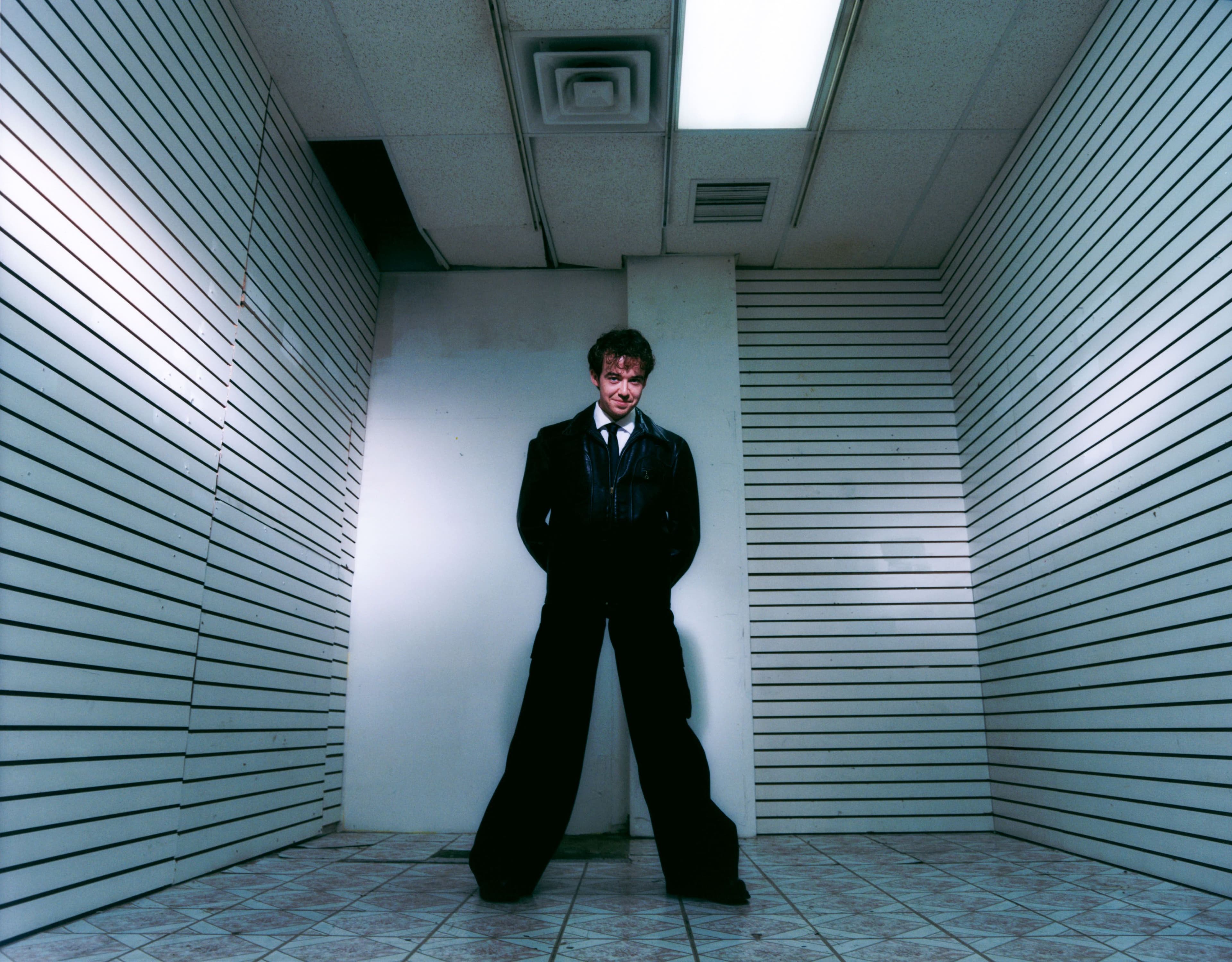
Vintage jacket from Stock Vintage. Shirt by Bode. Pants by Melitta Baumeister. Vintage boots, worn throughout, from Artifact. Tie, stylist’s own.
Live from New York: Alex Lawther
With his turn as Hamlet at the Park Avenue Armory this summer, the English actor Alex Lawther has now starred in two stage productions in New York—both of which have offered bracing reminders that it is exactly what makes live performance so powerful that also makes it so delicate. Back in 2018, when he appeared in The Jungle, a new play set in the eponymous and notorious refugee camp in Calais, at St. Ann’s Warehouse, three of his castmates (two Iranians and one Syrian) were barely able to get into the country thanks to Trump’s travel ban against citizens from several majority Muslim countries. Days before previews of Hamlet were set to begin in June this year, Lia Williams, who had been cast as his mother Gertrude, tore her Achilles’s tendon. Her replacement, Jennifer Ehle, tested positive for Covid-19 less than a week after opening night, yet another twist on the production’s long journey since it was originally postponed in 2020 when the coronavirus first began spreading.
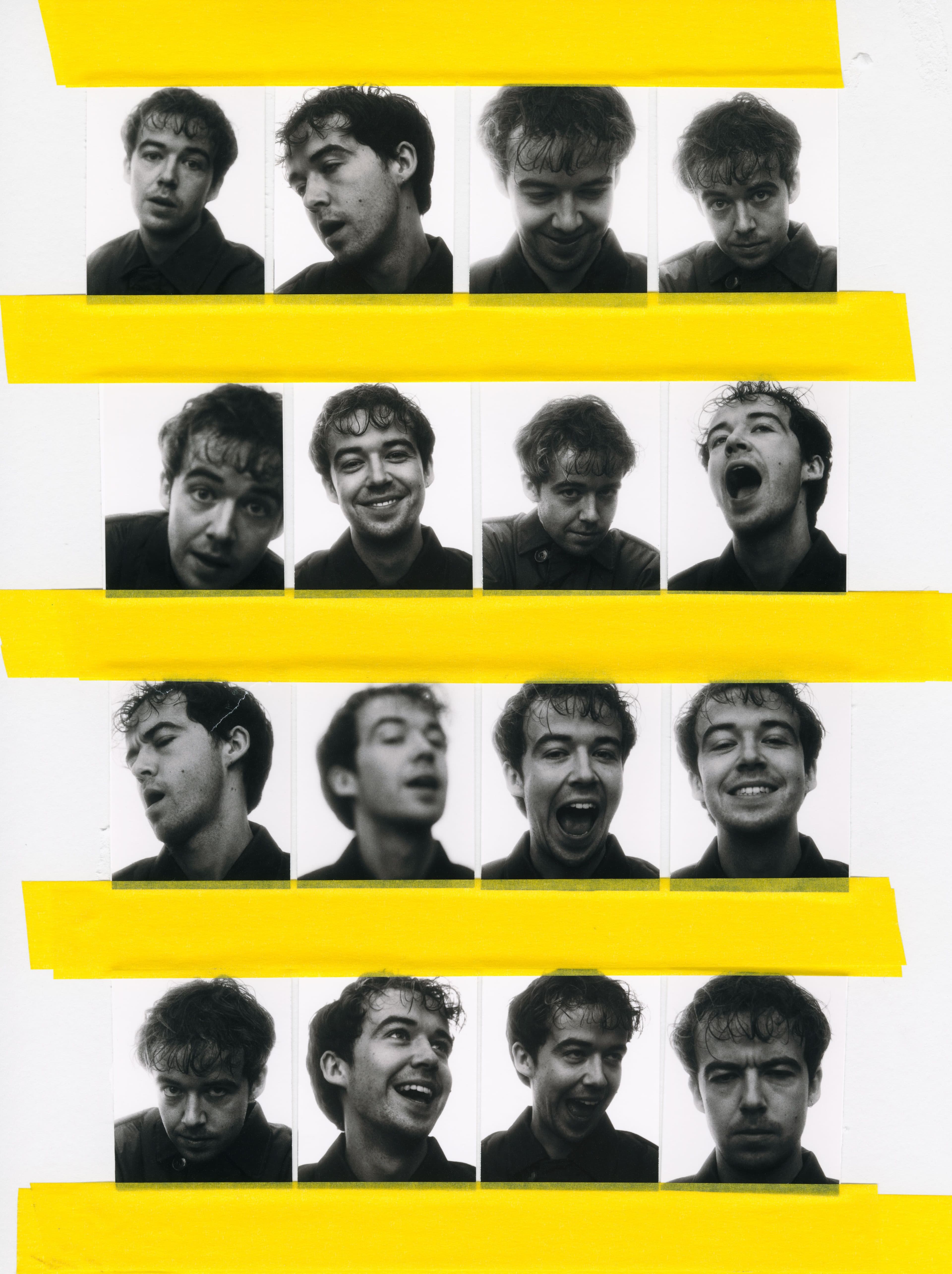
Vintage jacket from Stock Vintage
Live performance is nothing without its live performers, and what we have learned from these long, dark pandemic years is that the incomparable pleasure of experiencing art created in real time is a privilege to be treasured and fought for. The magic of sharing a darkened room with a cast and audience has been enhanced by the newfound recognition of the difficulty of accomplishing such a feat on any given night. According to Lawther, that transcendence is shared by those on both sides of the curtain. “You sit with a piece and then you go through rehearsals with the piece and then finally you get to meet the audience and you forget and then remember every time how theater only exists with an audience and you only discover what the show is once you’re sharing it with a live audience,“ the 27-year-old said earlier this summer after several previews. “We’ve done five shows now I think and we’ve learnt more in the space of that week than we have in the two years waiting to do this show.“
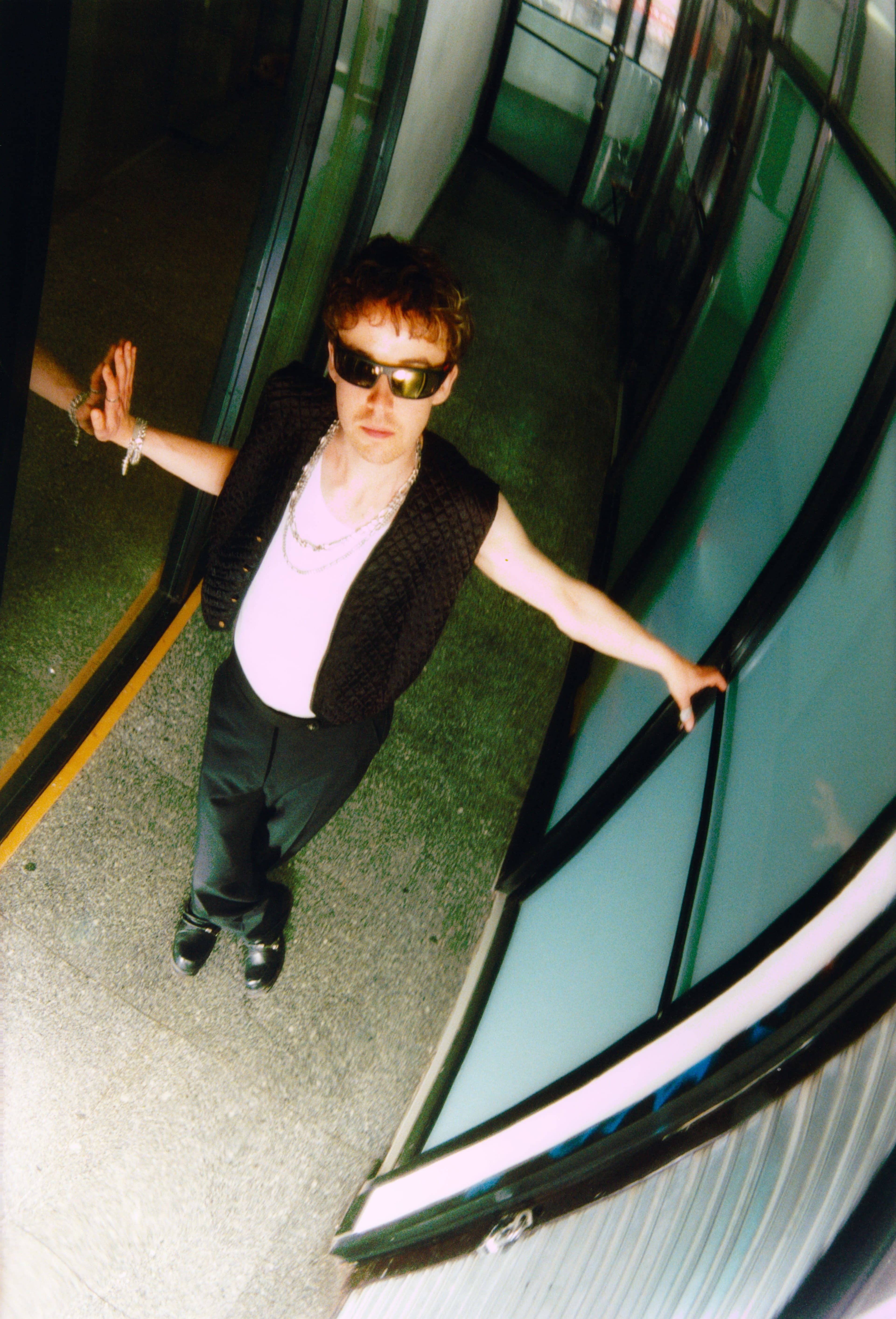
Vintage vest from Stock Vintage. Undershirt, stylist’s own. Pants by Bode. All jewelry throughout from Front General Store.
Those two years of waiting were, Lawther admits, difficult, but he is quick to point out that the extended preparation period also had its benefits. Back in 2020, he had been traveling from London periodically to meet the production’s director Robert Icke in Stuttgart or Amsterdam, where the latter was then an artist in residence with the celebrated theater maker Ivo van Hove’s company, to rehearse Hamlet’s many iconic soliloquies. With Hamlet slated to run in repertory with Aeschylus’s trilogy of Greek tragedies Oresteia, the pair wanted to focus on Lawther’s moments alone before the frenzy of preparing two masterpieces of Western drama at once. “One interesting thing was it meant that I had a long relationship with Rob,“ the actor adds. “I had two years to be speaking back and forth with him, which was a real luxury. I suppose there was a sort of mixture of grief and joy when we all met up in a rehearsal room finally for the first time that wouldn’t have been so prescient had it not been two terrible years for actors and theater makers. There was a sort of accumulated joy when we finally got together, but also a real understanding of the fortunate nature to actually get to be making quite a big piece of work.“
Icke, best known in New York previously for his visceral Broadway adaptation of Orwell’s 1984, is celebrated for his deliberate and incisive vision, and sometimes revision, of theater works. The Hamlet he and Lawther have created is rare among the many, many, many portrayals of the character for his introspection and a sense of inner depth that is more commonly overwhelmed by bravado. Icke has told The New Yorker that the driving force of the production is grief, here expressed as a quiet sense of resignation, and Lawther’s Hamlet, despite his threat to put on a show of madness, seems to be the brooding anchor amid the tumult of the Danish court.
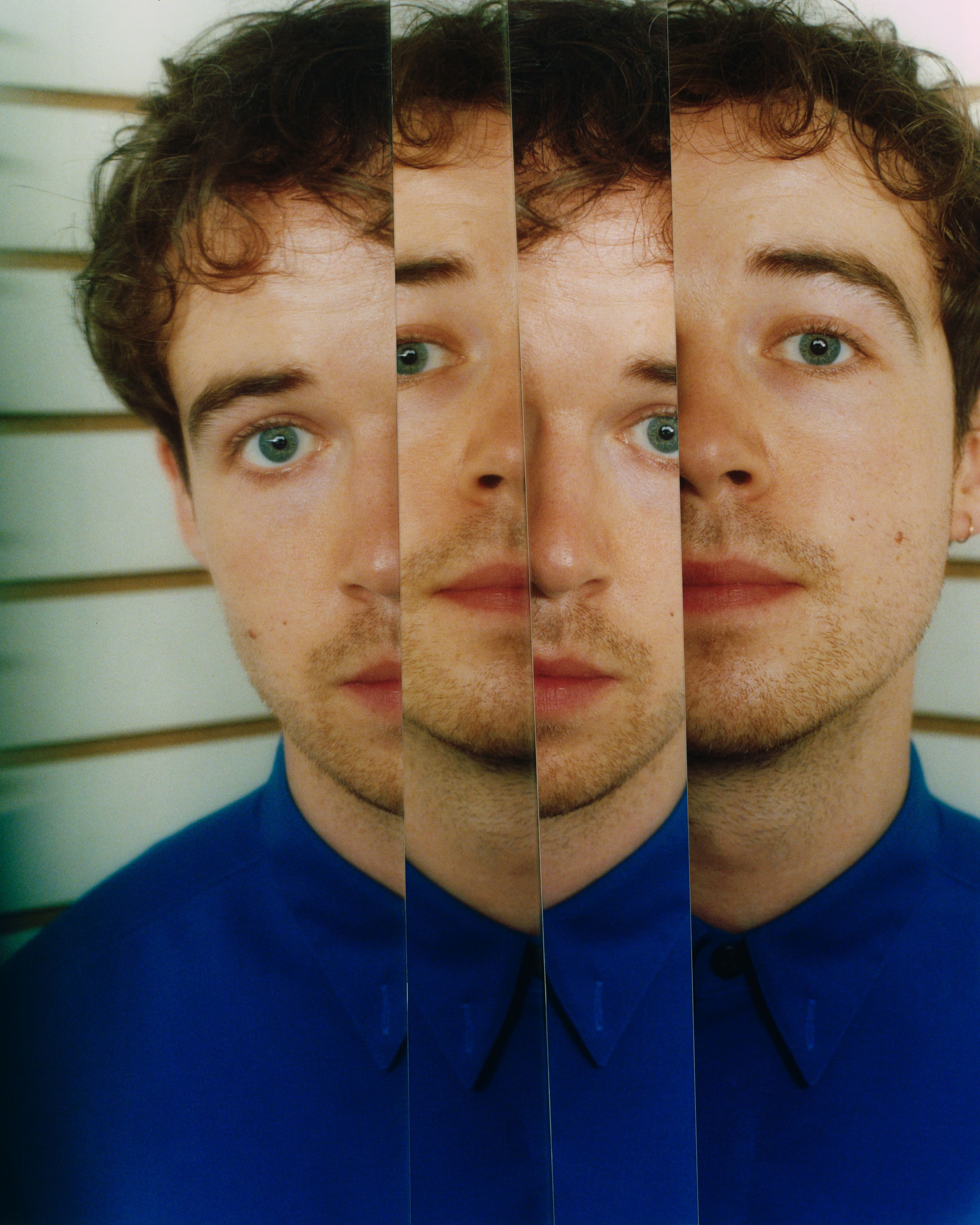
Shirt by Bode
Staged in modern dress against a sleek modernist set of sliding glass panels, Icke’s Hamlet distances itself from its predecessors for its purity and clarity, which Lawther credits to the director’s unwavering focus on the text itself. Despite the extended legacy of celebrated actors who have played Hamlet over the past four centuries, Lawther says that concentrated attention allowed him to avoid questions of how to make the role his own. “At the end of the day, you’re making something in the present moment and you’re sharing it with people who are actually there, so you have a responsibility to be honest,“ he explains. “Rob’s way of working is about removing any preconceived notions and trying to understand what is actually being said in any given moment and what each character is really after. It’s quite simple in many ways but sometimes I suppose we do forget it because of the long-steeped history of these plays, but Rob has such an incisive way of oddly making the text feel like it’s a new piece of writing. It’s our job to make that feel as though it’s being said for the first time right here and right now, so all of that weight I suppose evaporates because ultimately we have to make sense of it for ourselves.“
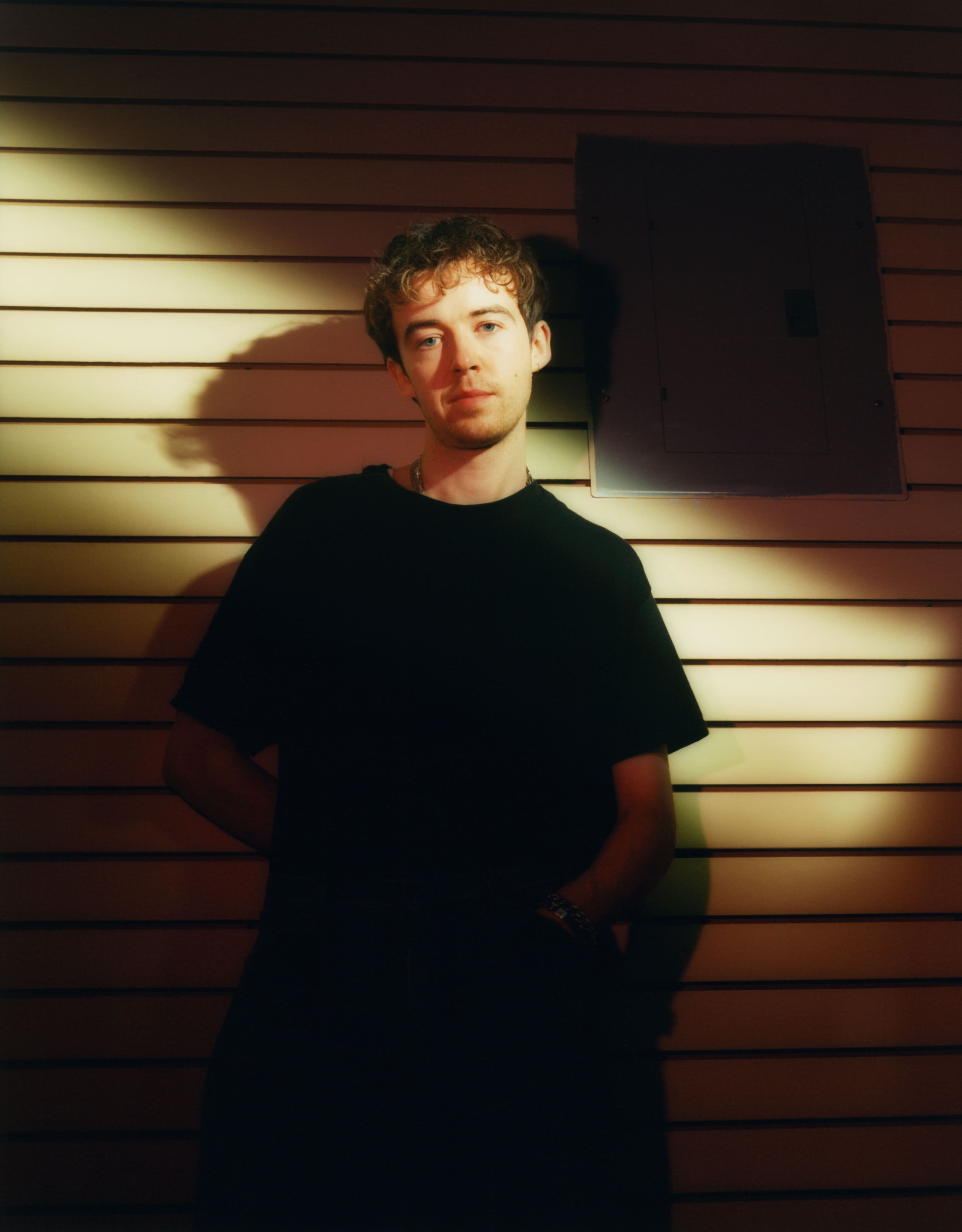
T-shirt, stylist’s own. Jeans by R13.
Over the course of a decade as an actor, from his West End début at sixteen in a David Hare play and his role as a younger version of Benedict Cumberbatch’s Alan Turing in The Imitation Game to his recent turn as a self-described teenage psychopath in the BAFTA TV-winning series The End of the Fucking World, it’s clear that Lawther has had plenty of preparation for tackling one of the most quintessential roles in the Western canon. But as he (and Hamlet) will tell you, all that preparation is still only a fraction of what is necessary for the creation of art that is true and real. “I had the fortune of working with Peter Brook, who has spent his life working on Shakespeare, and he always comes back to this line in Hamlet of ’The readiness is all,’“ he says. “You rehearse and you rehearse and rehearse in life but ultimately you just sort of improvise when it comes down to it. You sort of make it up as you go along. That was a strange sort of proof. We really have no idea do we of how things are going to turn out and just sort of make the best of what we can.“
Hamlet runs through August 13 at the Park Avenue Armory, New York.
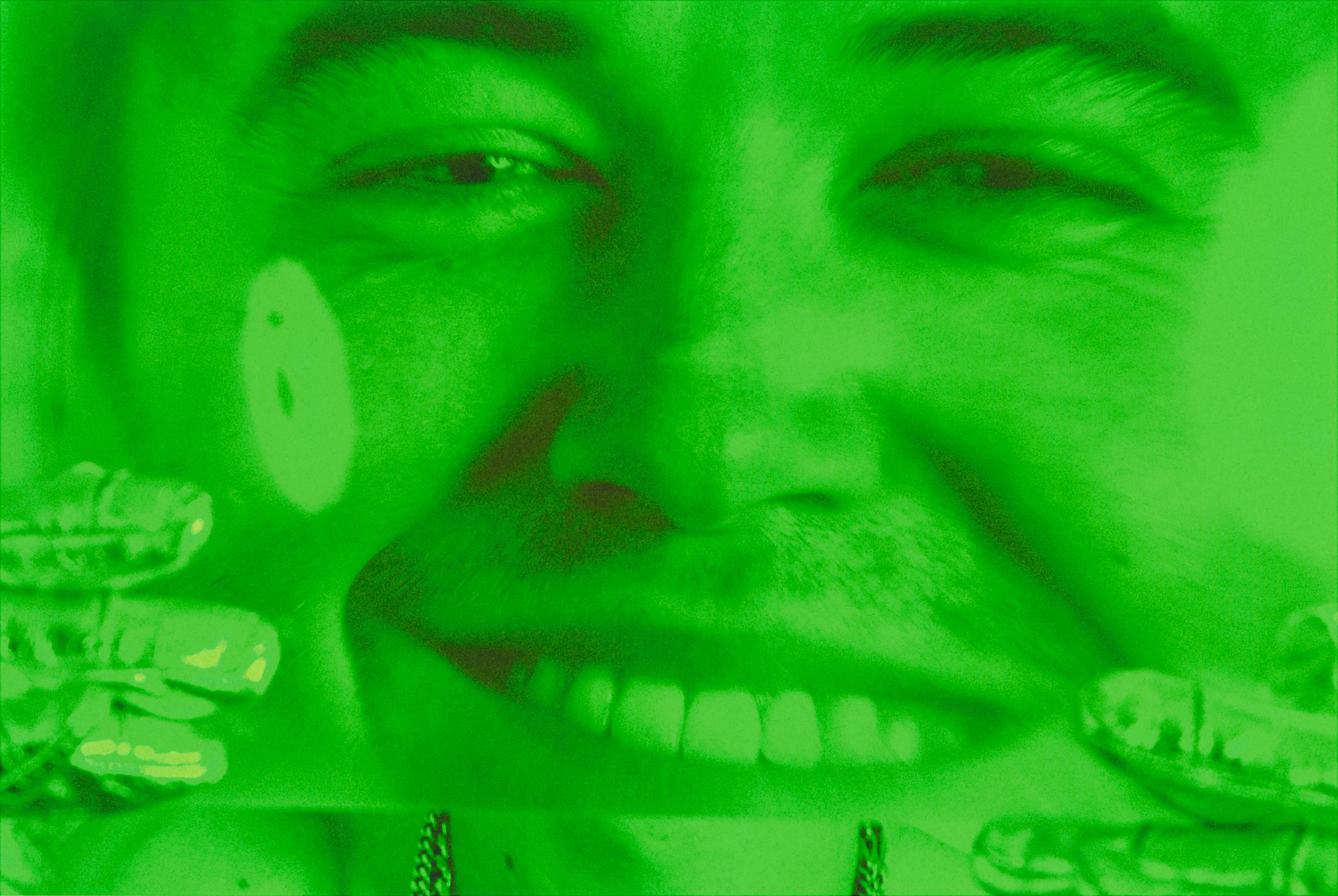
Vintage gloves from Artifact
As a nonprofit arts and culture publication dedicated to educating, inspiring, and uplifting creatives, Cero Magazine depends on your donations to create stories like these. Please support our work here.






